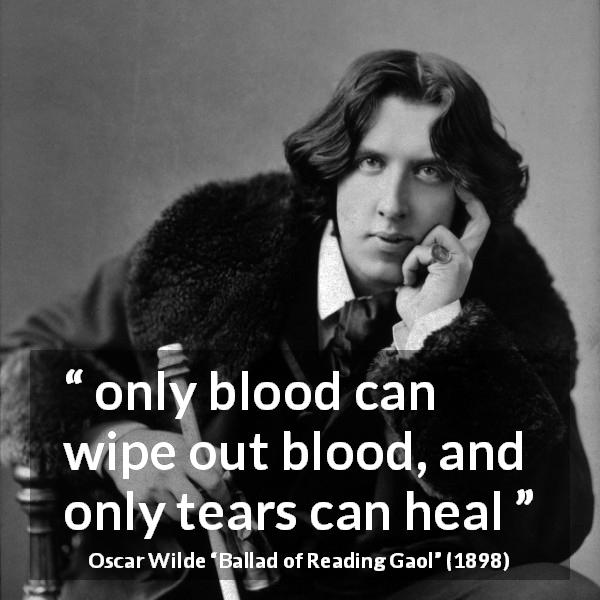

Dewdney’s performance is gratifying to watch. Nicolet has given Wilde well rounded characterisation little things like his quips, retorts or behaviour add substance to and build a person out of historical accounts. In fact, Wooldridge’s answer implying that he does not find honesty in Wilde’s work is both a lingering moment cinematically and a slant reference to criticisms of his snobbery. Wooldridge (John Ellis Fox) is shown to almost be like a muse to Wilde, in the way Wilde asks him questions on his work. Wooldridge, a man sentenced to death by hanging for murder of his wife. His ballad looks back to the traditions of murder ballads and political ballads which demanded change.

In the last moments of the film, as Wilde (played by Paul Dewdney) sits down to finally write, it is not De Profundis he is shown to write, but his grim ballad on the prison instead, the central character of which is Col. Oscar Wilde’s The Ballad of Reading Gaol, written in 1897, is not about noble lords or ladies. Nicolet takes liberties with the history. And yet again, this is not a surprise the film bases itself on Wilde’s The Ballad Of Reading Gaol. And appropriately, it reflects as much on Wilde’s experiences as it does on the almost alive beast that is Reading Gaol. Aymeric Nicolet’s honest portrayal of Oscar Wilde and his days in prison, leading up to the composition of De Profundis, is simply named Reading Gaol.


 0 kommentar(er)
0 kommentar(er)
